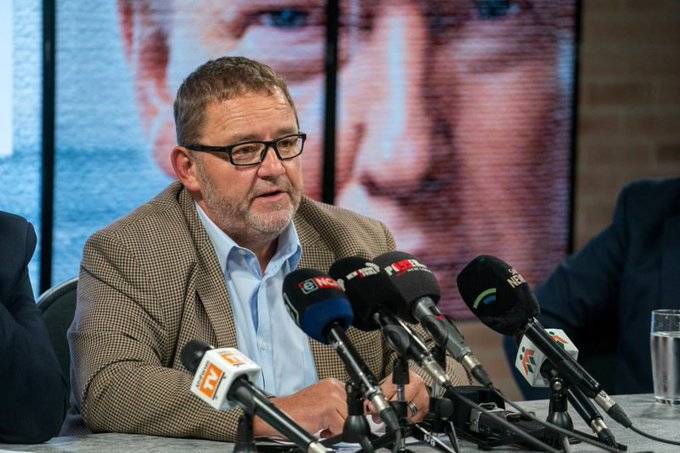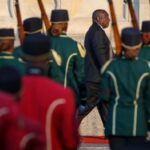The recent accusation of treason against civil rights group AfriForum by the uMkhonto weSizwe (MK) party has sparked controversy and legal analysis. The MK party alleges that AfriForum’s spreading of “misinformation” about the Expropriation Act led to US President Donald Trump halting millions of dollars in aid to South Africa. However, legal experts suggest that proving treason in court may be difficult, especially if it cannot be shown that AfriForum planned the alleged “treasonous act” in advance.
The MK party claims that AfriForum’s actions constitute economic sabotage and a betrayal of the nation’s independence. Trump’s executive order to halt aid to South Africa cited concerns over the Expropriation Act and the country’s genocide case against Israel as reasons for his decision. This move by Trump reinforced AfriForum’s claims of persecution of Afrikaners, particularly white farmers.
Despite Trump’s claims and the accusations of treason, the South African government and many political parties have rejected these allegations. The government maintains that the Expropriation Act is not part of their land reform program and is intended to acquire property for public use, not to seize land without compensation.
Legal experts agree that the calls to prosecute AfriForum for treason are legally unfounded. Treason, they argue, requires an intent to overthrow the government through unlawful means, which does not apply to AfriForum’s lobbying efforts. While controversial and misleading, lobbying does not meet the legal definition of treason in South Africa.
The failure of the ANC government to effectively manage the political discourse surrounding the Expropriation Act has been cited as a reason for Trump’s executive order. The government’s portrayal of the act as enabling land expropriation without compensation has led to confusion and exploitation by groups like AfriForum. Minister Gwede Mantashe’s statement about leveraging mineral resources against the US further exacerbated the situation.
AfriForum CEO Kallie Kriel has dismissed the accusations of treason as baseless, attributing Trump’s executive order to the South African government’s policies and actions. While the political fallout continues, legal experts emphasize that lobbying efforts, no matter how controversial, do not meet the legal criteria for treason. The debate surrounding AfriForum’s actions remains a political one, rather than a legal one. AfriForum, a South African civil rights organization, is steadfast in its commitment to securing the future of Afrikaners in the country. The organization insists that urgent action must be taken to address the injustices perpetrated by the South African government against Afrikaners and other cultural communities.
The plight of Afrikaners, descendants of Dutch, German, and French settlers in South Africa, has long been a point of contention in the country. AfriForum believes that Afrikaners have been marginalized and discriminated against by the government, and that their cultural heritage and language are under threat.
In order to safeguard the future of Afrikaners at the southern tip of Africa, AfriForum is advocating for solutions to address the injustices they have faced. This includes advocating for the protection of Afrikaner cultural institutions, ensuring equal opportunities for Afrikaners in education and employment, and promoting the preservation of the Afrikaans language.
AfriForum’s commitment to the future of Afrikaners is rooted in a desire to see all cultural communities in South Africa thrive and prosper. The organization believes that by addressing the injustices faced by Afrikaners, the country as a whole can move towards a more inclusive and equitable society.
In conclusion, AfriForum’s dedication to the future of Afrikaners is unwavering. The organization is calling for urgent action to address the injustices faced by Afrikaners and other cultural communities in South Africa. By working towards solutions that promote equality and inclusion, AfriForum believes that the future of Afrikaners at the southern tip of Africa can be secured for generations to come.








